The first time my daughter, Eva, terrified me with her illness, she was only a few months old. She was a little stuffed up. It seemed like a mild cold. Then she spit up, just a little. Then she aspirated her vomit. Then she turned blue, her eyes bulged. Mute panic filled her small face. My husband was downstairs. I screamed for him, even as I turned her upside down and smacked her back as hard as I dared. Vomit flew from her mouth and she cried. I fell back on the pillows with Eva on my chest as my husband came in. For me, this moment marks the beginning. It was the first of many times that one, or, more often, both of my twin daughters would get seemingly every single illness out there and then take it to a frightening extreme.
I would like to say that I’ve handled this string of sick days with grace and serenity, but, in reality, not so much. Already overwhelmed caring for infant twins, their colds, flus, infections, and viruses closed the door to many of the things that made being life with small children fun. We missed co-op preschool, play dates, holidays, birthday parties, even vacations. We’ve spent whole weeks, the better part of a month in some grim instances, in a sleep deprived haze of doctor’s appointments, medications, hastily prepared meals, and midnight comfort sessions. When they got sick, I would experience a wave of frustration. There went my writing time, my work-out, the park date with a friend. I would feel guilty for my selfishness, but the irritation was there nonetheless. It would be another year before I understood the extent of the problem.
When my other daughter, Rose, was about 18 months old she woke up with a cold, but over the course of the morning she began to wheeze and choke to the point of vomiting. It was a Sunday afternoon. The doctor’s office was closed. I called the nurse hotline. I couldn’t concentrate while she gave me what I’m sure were very sound instructions, because all I could think about was the small, feverish body leaning against my chest. Her whole stomach pulled away from me with every labored breath. I hung up on the nurse, loaded our family into the car, and headed for the emergency room.
In the ER they let me hold Rose while they administered a steroid and gave her albuterol through a nebulizer, a machine that turns liquid medication into a fog that opens passages in the lungs. A feisty baby, she started to fight when they hooked her up to heart monitors. I forced my own racing heart to slow, held her close, and sang her favorite songs softly into her ears, stroking her hair and rocking her gently so as not to disturb the nurse’s work. Her body rested against me and I felt the weight of her trust in this alien environment.
Initially thinking that they would have to keep her in overnight, Rose surprised us all by responding to the medication and stabilizing enough so that we could take her home with the promise that we would nebulize her with albuterol every two hours around the clock, and finish the rest of the liquid steroid. Before we left, the doctor who had been looking after Rose all day with humor and kindness (he strongly suggested our Rose, a tough kid, should become a loyal member of the Raider Nation like him), recommended that, in the future, Rose be given albuterol at the onset of a cold, not as a last resort. He said it appeared that she had sickness induced, childhood asthma. He told us to meet with our regular pediatrician to discuss the details. Having watched our girls struggle through so many colds, I was relieved to have a strategy, but the diagnosis filled me with new dread.
If you don’t know what prednisone is, I hope it stays that way. If you do, call me, you’re probably as traumatized as I am. We should start a support group. Medically speaking, prednisone reduces inflammation in the lungs, which allows the patient to breathe more easily right away, and functions to help heal the lungs. Practically speaking, it’s a little like someone gave your kid speed. I remember being up with Rose the night we brought her home from the emergency room. At 11 p.m., after being awake for more than 17 hours, she gave a soulful rendition of Twinkle, Twinkle Little Star, while swaying and dancing around the living room. We were all emotionally drained and physically exhausted. I asked her if she wanted to watch Project Runway with me and eat some chicken?
As the nebulizers gave way to inhalers for both of our daughters, at least most of the time, except when it got really bad and the inhaler wasn’t enough, I began to realize that none of this was going away anytime soon. Doctors continued to reassure us that there was no reason to assume they wouldn’t eventually outgrow it. Funny enough, Rose, who we’d always thought of as the more asthmatic of the two, did start to outgrow her more severe attacks. I remember our jubilation when she caught a cold. A true cold. She was sick for a couple days. She had a runny nose. No big deal. That was like Christmas for us. But, meanwhile, Eva continued to need round-the-clock care almost every time she got sick.
I have taken Eva to the doctor so many times, Redwood City Kaiser Pediatrics is our home away from home. I look at the pictures of the doctors on the wall and I’m like, “Oh yeah, I remember that guy. We saw him when she was just a baby, and he jokingly offered to take her to the diner across the street.” And “Gee, that lady sure was nice to us when we came here last month for antibiotics for her ear infection.” They’re like a bunch of old friends.
Eva is—how can I say this without sounding judgmental—on the delicate side. Sensitive, emotionally and physically, she reacts strongly to the discomfort of being ill, finding it hard to sleep or settle. I have ended up taking her to the doctor more often than was necessary just hoping for some reassurance that she was getting better. That’s why I was unprepared for her to be diagnosed with pneumonia last spring when I thought we were dealing with a new version of the same old lingering illness. The nurse-practitioner told me she was going to prescribe prednisone. I held on to Eva and fought tears. I felt awful that I hadn’t realized how sick she was. And, I knew that the drug meant days of interrupted sleep and irritability for her, and, by extension, for me.
Seeing my distress, the NP asked why I was upset. I relayed our experience with the drug, and she acknowledged it could be rough, but, in this case, it was necessary. What really upset me seemed impossible to express. When will this end? Is this childhood asthma or is this a permanent condition? Every year I’d been waiting for them to outgrow it, but it wasn’t happening. Instead, in Eva’s case, it seemed to be getting worse.
While I ruminated and the NP ordered medications, Eva reminded her about the time, almost two years ago, when she’d come in to the doctor’s having fallen from our front steps onto the pavement below. She’d landed on her mouth, chipping a tooth. It is one of the top three Worst Things That Ever Happened during Rose and Eva’s childhood. This list also includes Rose’s trip to the ER, and the time Rose head-butted a brick patio, raising a lump the size of a plum and leading to two black eyes as the enormous bruise drained. Walk around the grocery store with a kid with two black eyes. Fun times!
“You were so nice,” Eva assures the NP. “I got scared at the dentist, because she put on a mask and a light on her head. She looked so scary! Like a monster! The NP is laughing, enjoying Eva’s account of the difficult day.
“Can I give you a hug?” Eva asks.
“Oh sure,” the NP answers. As she hugs her, she looks at me and mouths, “Great kid.” I want to cry. I can’t believe my sweet kid has pneumonia. What are we doing wrong? The questions I usually just shout in my head, I finally decide to ask out loud.
“Is there anything else I should be doing?” I ask about a range of supplements. I wonder if we should keep her home more, at the first sign of a cold? For longer after she seems better? Should I have breastfed for longer? Would it be different if they had been born later?
The nurse could pawn me off at this point, but she is kind, and Eva has won her over so thoroughly, she stops to look at the girls’ charts, reviewing our history. “You have some risk factors for asthma. Premies often have some lung problems. Because twins are often born early and at a lower birth rate there is some increased risk for asthma.” She looks at me and stresses the last line. “She will probably outgrow it.” I nod. She hesitates. I sense she doesn’t want to trivialize my pain, but there is a weight of something unspoken in her eyes.
“It could be worse?” I say more because I sense it’s appropriate to be grateful than because it is connected to anything I actually feel. She looks me in the eye.
“It could be much worse.” There is sad resignation in her voice. A penny drops. Can you imagine what this woman has seen? Disease. Abuse. Life-altering injury.
When you become a parent you join a global family. One of a group of people whose hearts can be ripped out at any given moment. An accident. A fall. A diagnosis. Violence. Some people live right in the midst of one of these, others fearfully close to the edge. By this reckoning I am way, way on the outskirts of real suffering. For a moment the extent of my enormous good fortune stretches in front of me. I have smart, funny, loving daughters. They are well-fed and strong. They are safe. They are profoundly loved. They get a lot of colds. It isn’t a tragedy and it doesn’t have to be anybody’s fault.
Maybe my girls will outgrow their asthma, maybe they won’t. I believe Eva will probably throw up in the place where my neck meets my shoulder a hundred more times. I will definitely spend more sleepless nights holding the nebulizer to both of my daughters’ faces as the cool steroid mist soothes their ragged coughs. In the overall scheme of things, none of this is that big a deal.
I’m not a religious woman. I don’t have faith in a transcendent being. But I do have a spiritual practice. It was articulated for me recently by one of the sages of the ages. Not Buddha or Rumi. Not Jesus or Mohammad. No, the mantra that helpfully summarizes my humble attempt to live better comes from that wise soul, Daniel Tiger, who sings in his sweet kitty voice, “When something seems bad, turn it around, find something good.”
This year, when my kids get sick, and I have to scrap the workout, defer a deadline, break a date, miss an event, I’m going to try to turn it around. In the hectic pace of life with all its demands and activities, how much more time can I expect to spend sitting under a blanket watching TV with my kids? How much longer do we have to cuddle in bed reading book after book? How many more empty days will we have to fill with whatever activity strikes our fancy: baking muffins, playing board games or drawing treasure maps? I already know that in spite of my best intentions, I will probably get bored. I will definitely get irritated. Threats and tears all around feel like an inevitability.
But, really, even given all that, however many more days we have together, how could it ever be enough?

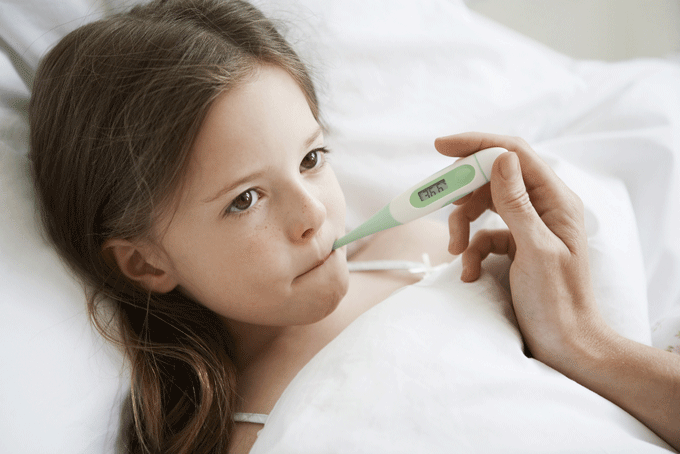
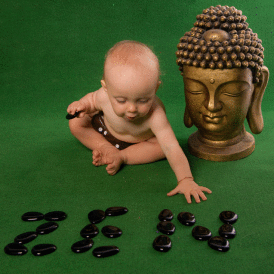
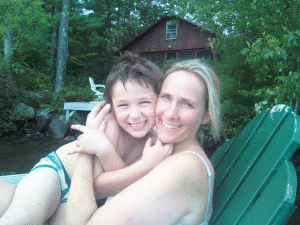




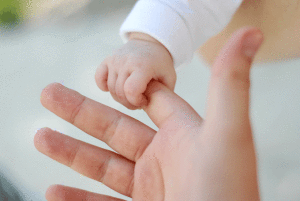
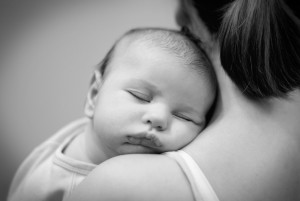


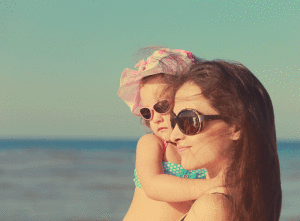
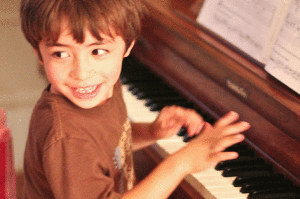







2014/11/19 at 9:56 pm
My son was sick all the time between the time he was a newborn and he was around 7. It drove me and my husband crazy. We felt helpless and stressed all the time. If the doctors are telling you it’s all relatively minor stuff, remember you will get through this. What doesn’t kill us makes us stronger!! Good luck!
2014/11/22 at 12:11 am
Last year my wife and I had a really bad winter where the kids were sick constantly. We lived to tell the tale and so far haven’t been sick at all this year so far. Damn, I just jinxed us!!!